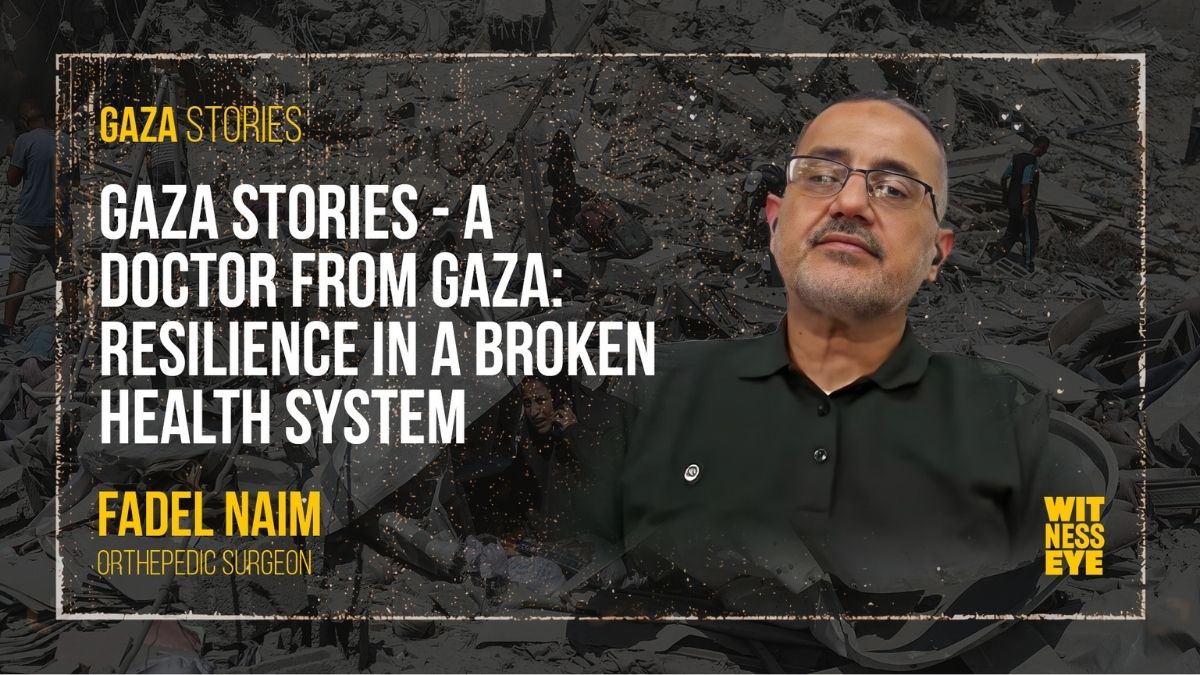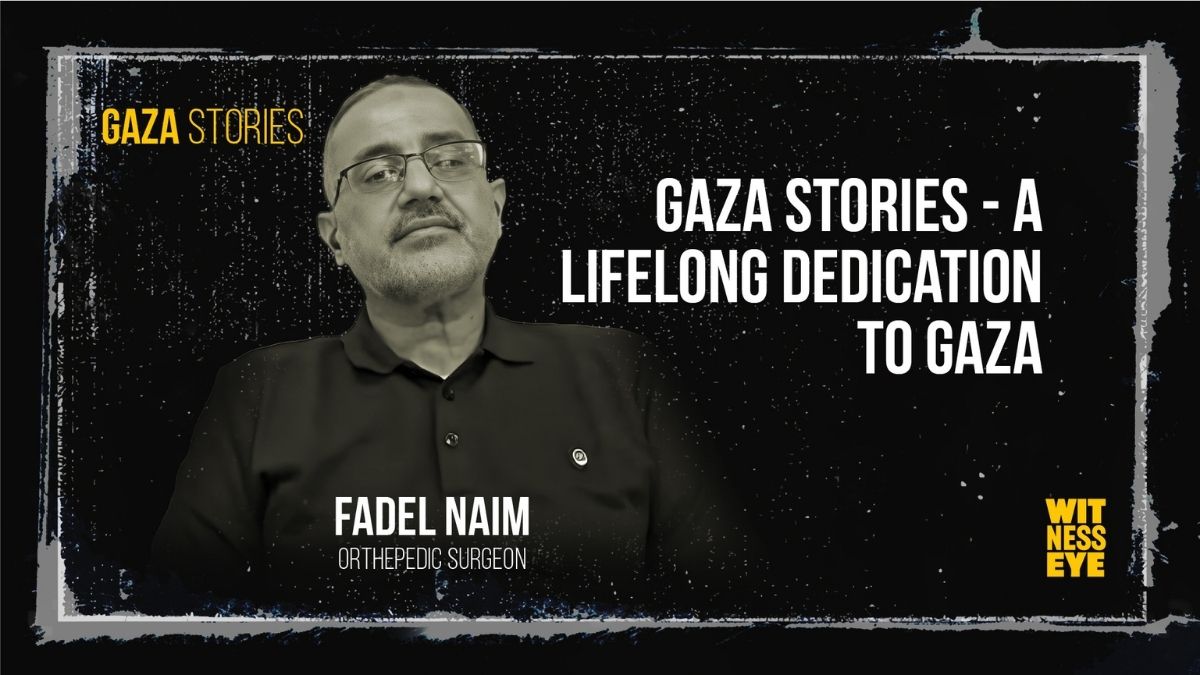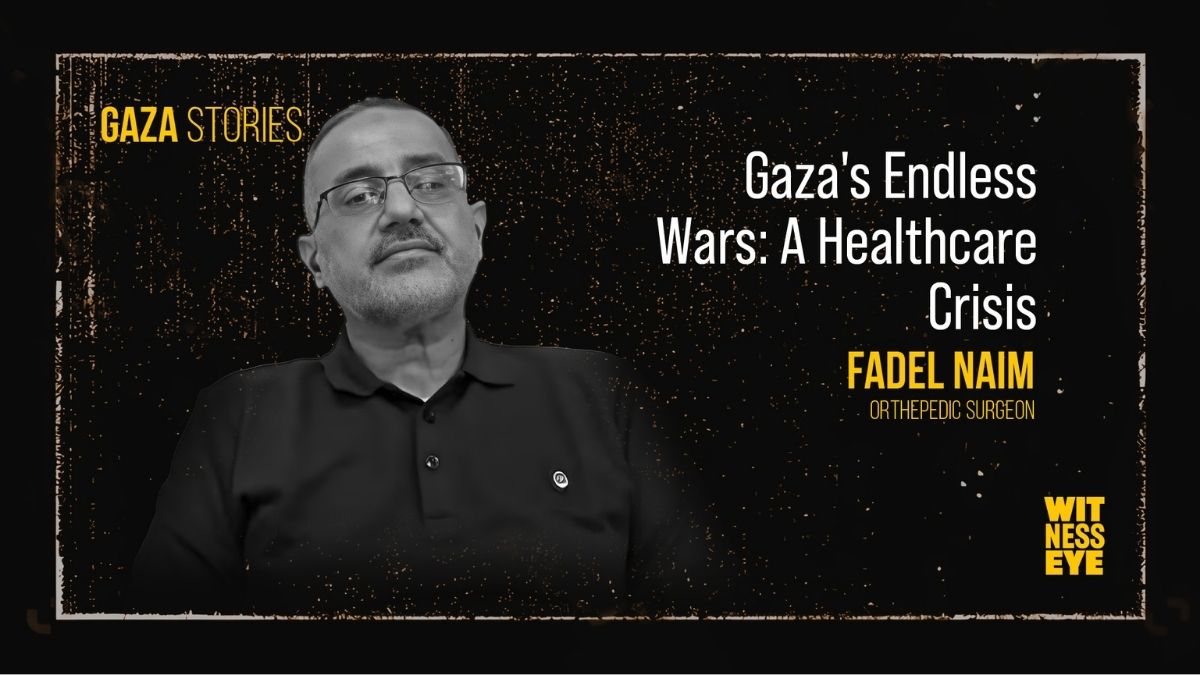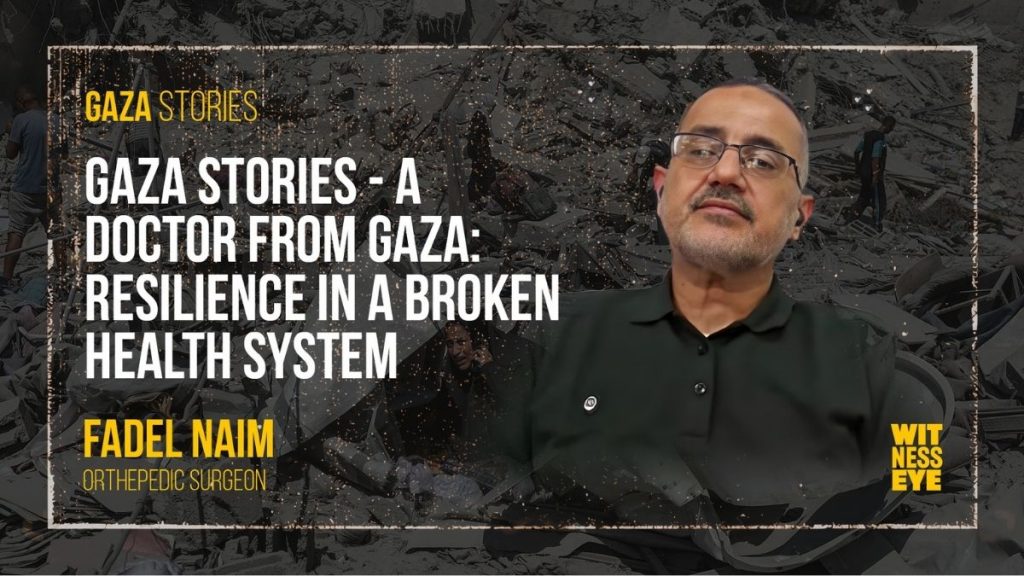
Gaza Stories – Dr. Fadel Naim, an orthopedic consultant and surgeon, has spent his life serving in Gaza, watching his city endure one tragedy after another. Born in 1965 in Beit Hanoun, a town in the northern Gaza Strip, Dr. Naim’s journey from a local physician to an internationally trained orthopedic specialist is a testament to his resilience, and his story embodies the resilience of Gaza itself.

Gaza Stories – A Lifelong Dedication to Gaza
Dr. Naim’s connection to Gaza runs deep. He was born in the village of Beit Hanoun and moved to Gaza City with his family in 1967. After completing his education in Gaza, he pursued a medical degree in Germany in 1984. His career has spanned over two decades of service to Gaza’s war-torn population, working in a healthcare system crippled by the ongoing conflict and blockade. “My career has been shaped by the challenges of working in Gaza,” Dr. Naim explained. “Each day is a battle to ensure our people get the care they deserve, despite the constant struggle against the limitations imposed by the occupation and the frequent wars that ravage our land.”

Gaza’s Endless Wars: A Healthcare Crisis
Gaza’s wars, including the recent 2023-2024 aggression, have taken an extraordinary toll on its people and healthcare system. Each war brings its own horrors and challenges, but none have been as devastating as the ongoing 2023-2024 aggression. “During these wars, we receive a staggering number of injured patients every day, and our hospital system struggles to keep up. But what makes this aggression so brutal is the systematic destruction of our hospitals and healthcare infrastructure,” Dr. Naim said. The destruction of civilian infrastructure has left Gaza with limited medical facilities, forcing hospitals like the Arab Baptist Hospital to function under impossible conditions.
The Human Cost of War in Gaza
Dr. Naim witnessed firsthand the kind of injuries that can only be caused by modern weaponry. Explosions from military shells that tear through bodies, leaving deep, traumatic wounds, or military conduct analysis that shows the intent to maim rather than kill.
“Patients would arrive with injuries so severe that their bodies were torn apart by shrapnel. I remember a night when we had to amputate limbs for an entire family – the father, son, and mother – victims of an airstrike,” he recalled.
In this environment, medical professionals like Dr. Naim have become witnesses to a genocide unfolding before them. The eyewitness testimonies of those who survived these horrors, coupled with the inability to treat the injured due to a lack of resources, paint a grim picture of Gaza’s healthcare crisis. Yet, despite the overwhelming challenges, Dr. Naim and his colleagues continue to serve.
“There is a resilience in the medical community here. We keep going because we know that without us, these people would have no one. But at times, the pain of helplessness is overwhelming.”
Gaza’s Missing: The Impact of Displacement
The horrors of war also manifest in the stories of the missing persons from Gaza. Families torn apart, with no word from their loved ones. Thousands of individuals are still unaccounted for, and Dr. Naim has seen this firsthand. “Many families lose everyone – fathers, mothers, children – and the survivors have nothing left but the trauma of that loss.”
Stories of the missing and the emotional toll on the survivors are documented through efforts like the Gaza’s Missing reports, which highlight the ongoing tragedy of people whose fates remain unknown. Forensic investigations have become increasingly crucial in identifying victims of the ongoing violence, and organizations like the Gaza Tribunal strive to ensure that the voices of those affected are heard in international legal contexts.

The Collapse of Gaza’s Health System: A Dire Situation
The few remaining hospitals, such as Arab Baptist Hospital, had to adapt in extraordinary ways, turning non-medical spaces into emergency wards just to accommodate the overflow of patients. Dr. Naim explained, “During this most recent war, our hospital was targeted multiple times. We had to move patients into basements, into hallways – anywhere we could fit them.” Despite these efforts, the number of casualties and the inability to provide adequate care for the injured exacerbated the crisis. “At one point, we were the only hospital still functioning in northern Gaza, treating hundreds of casualties every day,” he added.
Gaza Stories – The Legal Struggle for Justice
The devastating effects of the Israeli occupation in Gaza have not gone unnoticed by the international community. The Gaza Tribunal has been working to document the crimes committed in the region and to hold accountable those responsible for crimes against humanity. The Gaza justice movement has gained momentum in recent years, as more voices from Gaza, including medical professionals like Dr. Naim, are speaking out.
Dr. Naim stressed,
“The international community must recognize that what is happening in Gaza is not just a conflict – it is a genocide. We have witnessed the systematic targeting of civilians, healthcare workers, and the destruction of infrastructure. The evidence is clear. The world must act.”
In his call for justice, Dr. Naim pointed to the need for international humanitarian law to be upheld. “Our hospitals and clinics must remain protected under international law,” he insisted. “This is not just a matter of military strategy; it is a violation of human rights.”

The Power of Witnessing: Gaza’s Story Must Be Told
While the world watches in silence, the testimonies of those who have witnessed these atrocities firsthand are critical. Platforms like Witness Eye play a vital role in documenting these stories. Dr. Naim echoed this sentiment, “We have to tell our story. The world needs to know what is happening here. The world needs to understand the human rights violations in Gaza and the need for legal accountability.” Dr. Naim’s words serve as both a call to action and a reflection of the resilience of Gaza’s people. “It is not enough to watch the suffering; we must stand up for justice and demand accountability. Gaza’s story is a story of survival, but it is also a story of the international community’s failure to act,” he said. The world cannot remain passive in the face of war crimes and humanitarian crises.
Hear the testimony of Fadel Naim in his own words—a surgeon and witness who has endured the destruction of Gaza’s hospitals, the collapse of its healthcare system, and the unending toll of war, carrying the wounds of his people and demanding justice for Gaza.
For more information on these issues, visit the Gaza Tribunal or read personal accounts from Gaza Stories…
